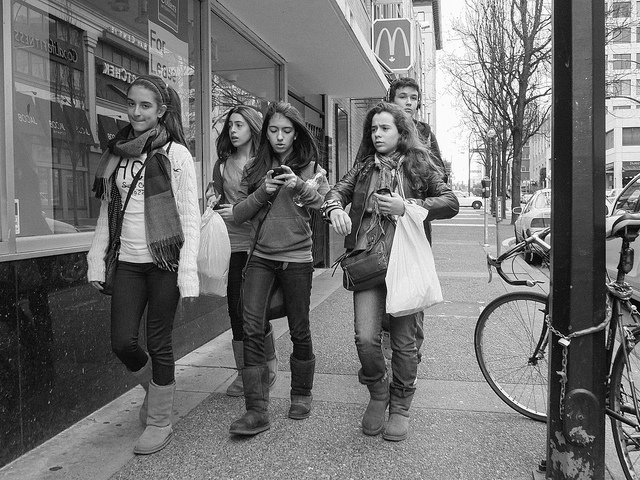By Jeff Brumley
Trying to figure out what teens are saying to each other in acronym-heavy text messages can drive parents and youth ministers batty.
The lexicon has gone far beyond LOL and ROFL to what often looks like more sinister — even sensual — communications.
“It’s another language and I believe as youth ministers and parents it’s our job to be communicative with our kids and teenagers, and learning their language to a degree is important,” said John Uldrick, minister of students and missions at First Baptist Church in Rome, Ga.
 An online poll by a North Carolina-based Baptist youth ministry consultant seeks to determine what it is that teens really are and aren’t saying in those seemingly cryptic texting sessions.
An online poll by a North Carolina-based Baptist youth ministry consultant seeks to determine what it is that teens really are and aren’t saying in those seemingly cryptic texting sessions.
Brian Foreman of b4man Consulting said his goal is to use information gathered in the online survey to promote healthy dialogue about texting and social media communications. It’s also meant to help adults avoid panic when media reports describe alleged widespread trends that may or may not be so widespread.
“When we react out of fear, the trust erodes whether the teen has done something heinous or not,” Foreman said.
Foreman’s poll presents 28 texting and internet chat acronyms — like KOTL, LMIRL and WTTP — and asks the taker to define their meanings.
He got the idea after a local television station asked him to write about a CNN report warning parents about the 28 acronyms.
It made Foreman wonder: do teens really know what they mean? He had his doubts.
“One teen asked me, ‘How many of these did you make up?’”
‘Meet them where they are’
Uldrick said he has wondered the same thing.
“I’m going to get the teens here to fill it out,” he said of Foreman’s survey.

Whatever the outcome, Uldrick said it isn’t lost on him how the issue of texting and acronyms and online surveys has radically changed youth ministry.
He agreed there was a time when a youth minister’s job mostly involved planning and hosting youth group meetings, counseling youth on matters of faith, and leading youth trips.
But the modern version of the job requires youth ministers to be so much more, and to have a handle on subjects ranging from drug and alcohol addiction to the workings of Twitter and Instagram.
It means having the whole picture of a young person’s life and development in mind, he said.
“Part of my calling is to help teens navigate not just spiritually, but emotionally and socially,” he said.
That’s in part because of the swift development of social media and digital communications, which can get teens into big trouble — and stunt their personal and social growth — faster than most anything else.
“It’s a huge way they communicate,” Uldrick said. “It’s a skill for youth ministers to be up with what the teenagers are saying” online and on their phones.
Uldrick said his aim is to show young people that their actions in the digital and online worlds can have massive consequences in their lives. He said that can be as hard as convincing them to drive safely and avoid substance abuse.
“At some point it’s our job to meet them where they are but also help them learn to communicate” safely, Uldrick said.
“It can also mean showing them how to write a thank you note and how to communicate face-to-face or how to have a conversation with someone,” he said.
Feeding fears
But Foreman said the early returns from his survey, which went online in late December, may surprise many adults.
 “So far, the age group that knows [the acronyms] are 35 and up, and there’s very low response from teens who actually know what they are,” Foreman said.
“So far, the age group that knows [the acronyms] are 35 and up, and there’s very low response from teens who actually know what they are,” Foreman said.
He added that some of the acronyms date back to the days of AOL chatrooms and messaging, which likely explains why adults know the terms.
But that also feeds fears in parents who were involved in that activity in the 1990s, as they assume their children are now communicating similarly.
“This feeds into their fears,” he said.
Rather than act on those fears, and alienate their teens in the process, Foreman cautioned parents against believing social media and texting trends are as big as the media suggests.
“Don’t overreact — take a deep breath,” he said. “Chances are it’s probably not as bad as we think it is.”
And remember the consequences that hysteria can have on a relationship with a teen.
“The worst thing we can do is project bad behavior onto our teenagers, when in most cases the teenager probably hasn’t done anything wrong.”
